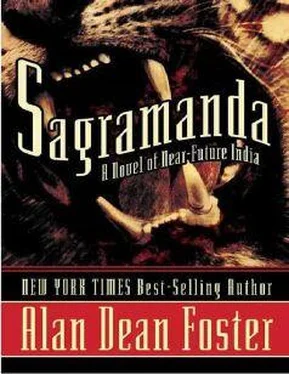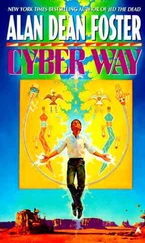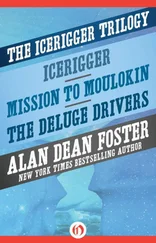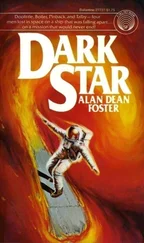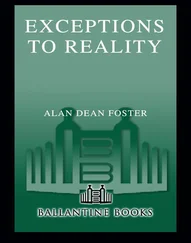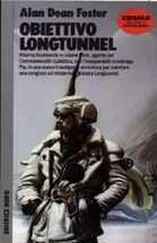As he did so, sunlight reflecting off something on the ground caught his eye. Squatting, he reached down to pick up the piece of folded glassine. Its torn edges showed that it had been part of a larger packet. Now it was empty, except for what looked like a clutch of small seeds. Frowning, he turned the fragment of see-through envelope over in his fingers. Definitely seeds. Rising, he looked up the trail, then down. Dropped by someone, probably, in their headlong flight from the tiger.
Even ordinary seeds deserved a chance at life. Almost absently, he shoved the piece of transparent wrapping into his shirt pocket, making sure to fold it double to keep its humble contents from spilling out. Plants were just like visiting relatives, he reflected. He might not be comfortable completely surrounded by them, but in moderation and kept at a reasonable distance they could make for pleasant company.
When they finally sprouted in the self-watering window box he kept in his office, he was mildly disappointed. Hoping for something exotic, he found himself caring instead for a dense fresh growth of jugla. A common roadside weed, jugla at least had somewhat attractive, small yellow flowers. The upside was that they wouldn't require much attention to thrive. That quality would help them survive in the office of a man who very often was not there.
He had spent the morning dealing with the inevitable endless flow of paperwork, a river of reports as long and wide as the Ganges. Now it was time to go out into the field and try to follow up on half a dozen ongoing cases, not to mention the usual riots, political protests, and preholiday confrontations. His driver today was a Corporal Abuya; young, attractive, and puppy-dog eager. He smiled thinly to himself. A few days tramping through the underbelly of Sagramanda would put a damper on that just-out-of-the-academy enthusiasm. Seasoning, it was called. He wondered at what point he had stopped being seasoned and had started being aged.
As soon as he seated himself in the cruiser, pleasantries were exchanged and the corporal efficiently guided the fuel-cell-powered patrol car out of the underground motor pool garage and up into the barely controlled chaos of the city streets. Its clean-burning hydrogen-fueled engine emitted no pollutants into Sagramanda's brown but increasingly tolerable atmosphere while pushing the car along at more-than-adequate speeds.
High above the street, a miniature forest of unassuming roadside weed prospered in its window box. Looking just like any other batch of unpretentious jugla, the plants growing outside the window of Chief Inspector Keshu Jamail Singh's office were in fact slightly different from their commonplace country cousins. The end product of decades of research that had in its most recent stage been supervised by a brilliant and now-vanished biochemist, this particular variety of jugla had been genetically engineered so that, without any extra effort or special nutrients or additional attention, it emitted not one but two gaseous by-products. The usual oxygen, and most unusually and remarkably, free hydrogen.
In secret fields somewhere in central Asia, tens of thousands of acres of cotton and wheat had been plowed under to allow for the planting of a new cash crop. Much to the puzzlement and amusement of the local farmers whose lands had been bought out for the new project, the disciplined agriculturalists who had been brought in to take their place had sown neither of those traditional crops, nor millet, nor sorghum. No, the newcomers had spent a minimal amount of money and had put in place the most simple, basic farming equipment to raise-weeds!
Over tobacco and strong, heavily sugared tea, this outlandish development was much discussed on the streets and in the bazaars of neighboring towns. What did the investors expect to get out of such a planting? How could they possibly hope to recoup their investment from dirty, worthless weeds?
The investors were not worried. In fact, they were much pleased when their first crop came in. Requiring virtually no water and practically no fertilizer, the visitors gazed proudly at the sight of the billions of little yellow flowers that soon covered their extensive fields, the slender green stems erupting from even the poorest soil. With the success of the project speedily proven, plans were already in the works to greatly expand the plantation and to export it elsewhere. Multiple crops of such hearty, naturally disease- and insect-resistant plants could be raised all year beneath the specially treated impermeable plastics that protected them from the weather.
Protected them, while also channeling to collection reservoirs the millions upon millions of cubic meters of virtually free hydrogen fuel being generated by the weeds whose natural photosynthetic process had been genetically modified to emit the precious gas.
At the cost of a hundred million dollars, the consortium of investors reckoned the purchase of the jugla's genetic code to be some thing of a bargain.
Khatm karma
